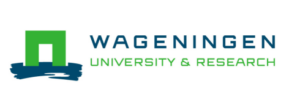WP4 – “Governance arrangements”
WP4: Governance arrangements for Dutch waterscapes
Leader: Dr. Wieke Pot, Wageningen University
The Netherlands is already facing a range of climate-change related acute and creeping crises (Boin et al., 2020) such as periods of drought and severe floods. The very dry summers of 2018, 2019, 2020 and 2022 and the floods of 2021 have shown that the Netherlands will need to make a water transition to become climate robust: a transition from pumping and discharging water to keep our feet dry and facilitate agricultural production, to maximizing water storage while maintaining water safety. To prepare for the future, rural landscapes will need to be redesigned to establish waterscapes. These waterscapes will require inconvenient but forward-looking decisions (Pot et al., 2018). Existing governance arrangements have difficulties formulating adequate policy responses to creeping crises and required transformation, as they are designed to respond to present-day challenges and for incremental policy changes (Boston 2017; Nair and Howlett, 2017). However, waterscapes require more fundamental choices and transformative changes to existing land use and water systems and this will also require a change of governmental policies and processes. Together with WP5, WP4 aims to design transformation pathways to integrated, just and adaptive governance arrangements that enable coordination between actors to establish waterscapes in the Dutch Delta.
The activities of this work package can be divided into four steps:
- Analysis of past decisions, assumptions and use of decision-support methods that shaped the existing land use and water systems: how have combinations of actors, rules, instruments, processes and decision support methods developed and performed over time?
- Analysis of frames: How do actors frame past, present and future images of the Dutch rural area and water system in interaction and what is the potential for frame connection? In this step we will analyze the frames that actors employ and how they interact with each other, using (social) media analysis and focus group discussions.
- Identification of crucial forward-looking decisions and transformation pathways to waterscapes: What crucial and forward-looking decisions can be identified to establish waterscapes when considering timescales and issues of 10, 20 and 30 years ahead? In this step we will first develop a shared vision using frame reflection (Schön and Rein, 1994) and use the input of WP1 as well as WP6 to think through climate impacts and visualizations of new possible landscapes. We will organize participatory workshops (led by WP7) to backcast forward-looking decisions about water infrastructure investments and policies that are needed to arrive at waterscapes.
- Design of new governance arrangements: What are transformation pathways towards integrated, just and adaptive governance arrangements for Dutch waterscapes? In this step, we will compare the existing context with the decisions and processes needed to arrive at waterscapes. We will formulate recommendations for the national and regional rural areas plan (NPLG) and develop a timeline with possible actions and decisions and changes to decision-making processes that enable the coordination of water system investment decisions of multiple actors. We jointly organize participatory workshops (led by WP7) for each living lab to develop region-specific pathways and incremental but small-win steps (Termeer and Dewulf, 2019) to arrive at waterscapes.
Involved consortium partners:
Prof.dr. Art Dewulf

Prof. Marleen van Rijswick, Dr. Herman Kasper Gillissen


